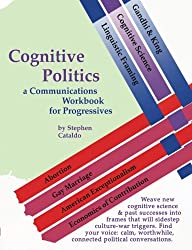We immediately recognize political battles, where two partisans are marshaling their facts to attack the other's views. It's often more effective to have conversations that do not center on the point of contention, but bring in facts or frames at other times.
For example, if an animal rights activist shouts "a pig is as intelligent as a dog," you have the facts. If you don't want to go vegetarian, what do you do? Do you spend ten minutes thinking about the facts and what they imply? Do you picture what it be like to play with a pet pig? Do you engage the fact, think that a pig would be able to learn a name, play fetch, want things from you? Do you find yourself curious: what parts of the brain are involved in pain? In a parent loving her offspring? Are these parts of the brain where humans have evolved to have more neurons, or our feelings shared? All of that is implied in this non-controversial fact. But only if you're curious.
Or, did you just quickly blink through the fact, because you want to be able to eat bacon, and human brains create frames that work in our interests — whether we're liberal or conservative. You can quickly acknowledge the fact and not think about how it contradicts some values you also hold. This is what happens as Trump voters hear facts about Trump and Putin: even if some pieces are proven true, they don't build a story out of each fact. That's why the battering-ram approach to facts doesn't work well.
Outside politics, effective animal rights activists want to change the frame, change your imagination: they want you to watch a movie about a pig, even if it's totally fiction and the quick description of a pig being as intelligent as a dog logically should be a sufficient fact, you know pretty well what that means, but watching a movie about a talking cartoon pig while not thinking about politics allows the story to be absorbed.
So finding ways to bring in the frame you want while not politics can be vastly more effective. Like many of the best techniques, it requires some patience, rather than aiming for victory: you're trying to get a different worldview into people's brains. Like an animal rights activist that hopes the next time you've got free time for your mind to wander, you'll try to imagine the interior life of a pig on high concentration farm — if they shout their facts at you, you'll just remember them shouting, you won't let your imagination wander and absorb the overall story instead of disjointed facts.
###
Today, Republicans have flipped and flopped their views on Russia at dizzying speed. There are documentaries about deterrence they would be likely to agree with if watched not as a part of that fight.
For example, rather than jump into a partisan fight with a relative over "Is Islam a dangerous religion?" you might just watch a documentary about the history of Islam. Or find an older movie about Jesus and Mary that is not about them being refugees, but includes that. You have to go slow; the goal is not to get a few facts absorbed, but change an entire worldview. Give it time, keep telling stories that are not political, not oppositional, until that frame is more present in someone's thinking.
See: "Progressives Demand Rights Instead of Telling a True Story," Cognitive Politics p.16.
